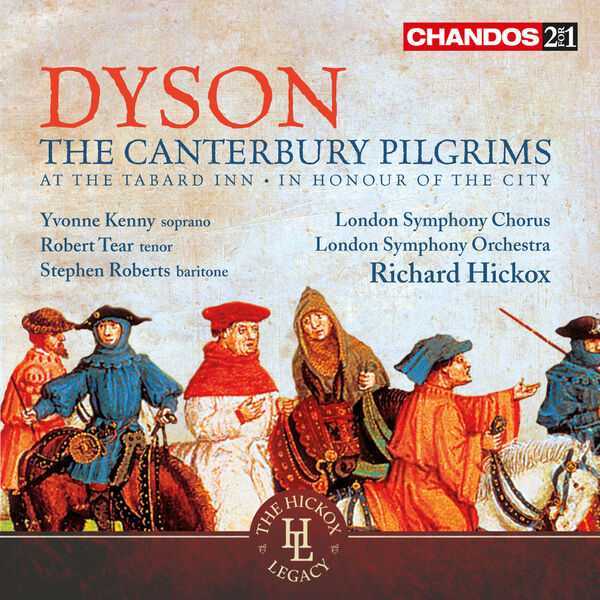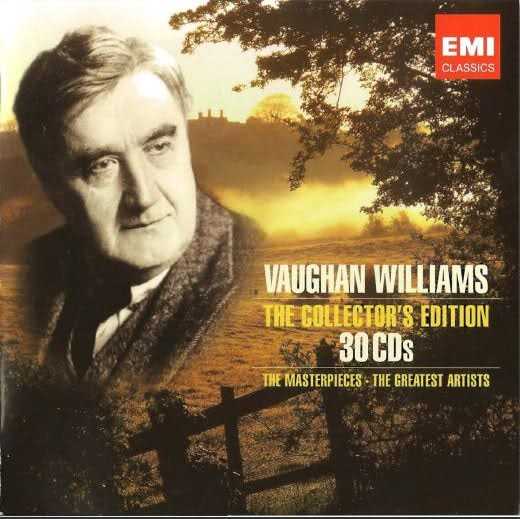
Composer: George Dyson
Performer: Yvonne Kenny, Robert Tear, Stephen Roberts, London Symphony Chorus
Orchestra: London Symphony Orchestra
Conductor: Richard Hickox
Format: FLAC (tracks)
Label: Chandos
Catalogue: CHAN241-43
Release: 2012
Size: 527 MB
Recovery: +3%
Scan: cover
At the Tabard Inn
01. Overture
The Canterbury Pilgrims
02. I. Prologue
03. I. Prologue (Fig. 2)
04. II. The Knight
05. III. The Squire
06. IV. The Nun
07. V. The Monk
08. VI. The Clerk of Oxenford
09. VII. The Haberdasher and his Fraternity. The Merchant
10. VIII. The Sergeant of the Law. The Franklin
11. IX. The Shipman
12. X. The Doctor of Physic
13. XI. The Wife of Bath
14. XII. The Poor Parson of a Town
15. XIII. L’envoi
16. In Honour of The City of London
This re-release of The Canterbury Pilgrims forms part of the new Hickox Legacy commemorative series on Chandos Records, leading up to (and continuing beyond) the fifth anniversary, in Nov 2013, of the conductor’s untimely death. The two-disc set is issued on the Chandos 241 label for the price of 1 CD.
The pioneering account of The Canterbury Pilgrims, a colourful but neglected work by Sir George Dyson, brilliantly depicts assorted characters from the prologues of Chaucer’s famous Canterbury Tales, while highlighting key aspects of Hickox’s recorded legacy: the championing of neglected repertoire in general, and British repertoire in particular, as well as his special affinity with choral music.
Dyson described The Canterbury Pilgrims as a work for ‘chorus, orchestra and three soloists’, placing the emphasis firmly on the chorus – appropriate, as the work gets much of its momentum and swagger from the dramatic and highly effective choral writing. In fact, the practical needs of the English choral movement lay at the very heart of this work. Dyson had been troubled by the fact that music of the past was exercising an increasing domination of the concert repertoire, and recognised that major English works such as Vaughan Williams’s A Sea Symphony and Delius’s A Mass of Life were beyond most choral societies. The music that sprang from these concerns was uncomplicated, vivacious, and tuneful, and not surprisingly it proved an instant success with many choral societies.
When first released, this recording was well received by BBC Music Magazine, which wrote: ‘Chaucer’s amusingly ironic depictions and Dyson’s memorable tunes and imaginative orchestration are a winning combination. If you like Gerontius, Vaughan Williams and Ireland, you’ll like Dyson. Go out and buy this disc *****’.
Gramophone echoed the sentiment, particularly commenting on the quality of the sound: ‘This is a very fine recording… Every layer in the texture is exceptionally well defined and integrated, which is no mean feat when such elaborate forces – soloists, choir, and orchestra – are involved’



